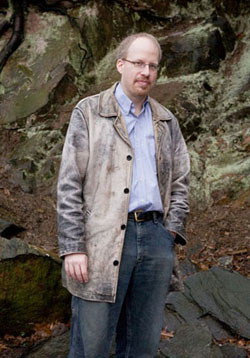There’s an interesting article over at the Chronicle of Higher Education concerning the writing process, or more specifically, the rewriting process. Rachel Toor tells a tragic tale (especially tragic if this has ever happened to you) of a book, nearly completed, annihilated by the dreaded computer crash. (I’m always amazed when people who have gone through this forget to back up their work and thus go through the same devastation a second time, but maybe it’s such a traumatic event they block it out of their minds.) Wailing and gnashing of teeth ensued, and when the dust cleared Toor was forced to write the book again, essentially from scratch–she apparently had forgotten everything. And thus the moral of the story: always back up your work, right?
Yep, that would have been my guess too. But instead, Toor says that her second draft was even better than her first, and that she thus learned a valuable lesson: forget about your first draft after you’ve written it. Close the file and don’t look at it again. When you’re ready, open a new document and start over again.
Really.
Toor admits that this is the “hardest part” of her advice to students, but argues that it’s also the most important. “In that first draft, you’ve done all the thinking,” she says, and from there it remains merely to write out the results of your now clearer and more focused perspective on the topic in your pristine second draft. It’s kind of the “lather” method, I suppose: you use soap to break down the dirt the first time around, but it’s the rinse which really washes it all away. Toor says that this method takes “guts and confidence”…and I can see why. But being gutsy isn’t always being smart, and here I think Toor is way off base.
I’m extremely sympathetic to the idea of revision; in all of my courses I discuss the importance of that process, especially in creative writing where revision is a critical part of the work. I give students a formal revision option even in my non-writing intensive classes. In this context, the principle behind Toor’s argument makes perfect sense; we can get wedded to one draft to such a degree that we can’t see the flaws in it any longer, and so we willfully ignore the problems to avoid having to do more work. But there are some serious problems with Toor’s approach:
1. Acting like the first draft is really just an extended brainstorm sounds bold, but it really isn’t even remotely germane to the way most writers really operate. The whole principle of revision is to take an existing draft and rework, rethink and redesign smaller or larger parts of the whole document to come up with a better version; pretending that the first draft is only important from a “clearing out the clutter so you can get to the real stuff” point of view is not only inaccurate, it completely destroys the idea of writing a usable first draft in the first place. When I was in high school I learned to develop much of the structure of a given assignment in my head first, before ever sitting down to typewriter (and, then thankfully early in college, computer keyboard!), and then went on to produce a quality draft. My problem at the beginning was that I seldom went to a second draft from there, but what can I say: I didn’t like typewriters. I got over that, and a lot of other bad habits, when I got to college. But the point is that if I had really believed that the first draft was going to be essentially ignored once completed, there’s no chance I would have given it any effort at all. Now I know Toor would say that you don’t “ignore” the first draft; I understand that it’s doing valuable work even in her system. But for most people, I think the idea of doing a kind of throw-away draft, even if that isn’t its intended purpose, is just not realistic. Which naturally leads to:
2. It’s not realistic. It’s hard enough to teach the principles of revision and drafting as it is without adding the idea that the first draft isn’t really going to be much of a visible part of draft two. And it makes any comments on the draft which ultimately gets turned into the professor/teacher much less effective, insofar as the students can just assume that this, too, really isn’t a “usable” draft–or worse, that they had finally turned in a finished product which couldn’t possibly be altered a third time. Of course experienced writers understand that a given work goes through many drafts, but these generally aren’t experienced writers we’re talking about…and we have to think about how best to teach good habits, including building on early versions of a given work, not (from these writers’ perspectives) throwing them away.
There’s no doubt that Toor’s suggestion is a daring and provocative one. But “daring” and “provocative” isn’t always the same thing as “wise,” and here I think she’s missed the boat a bit. A draft is just a draft, sure; but just as you don’t build a foundation and then tear it down before building the upper floors, abandoning (either accidentally or intentionally) a first draft in favor of your focus on the second isn’t the best way to produce the best work in the long run.
Which is why you should really, really back up your work.
